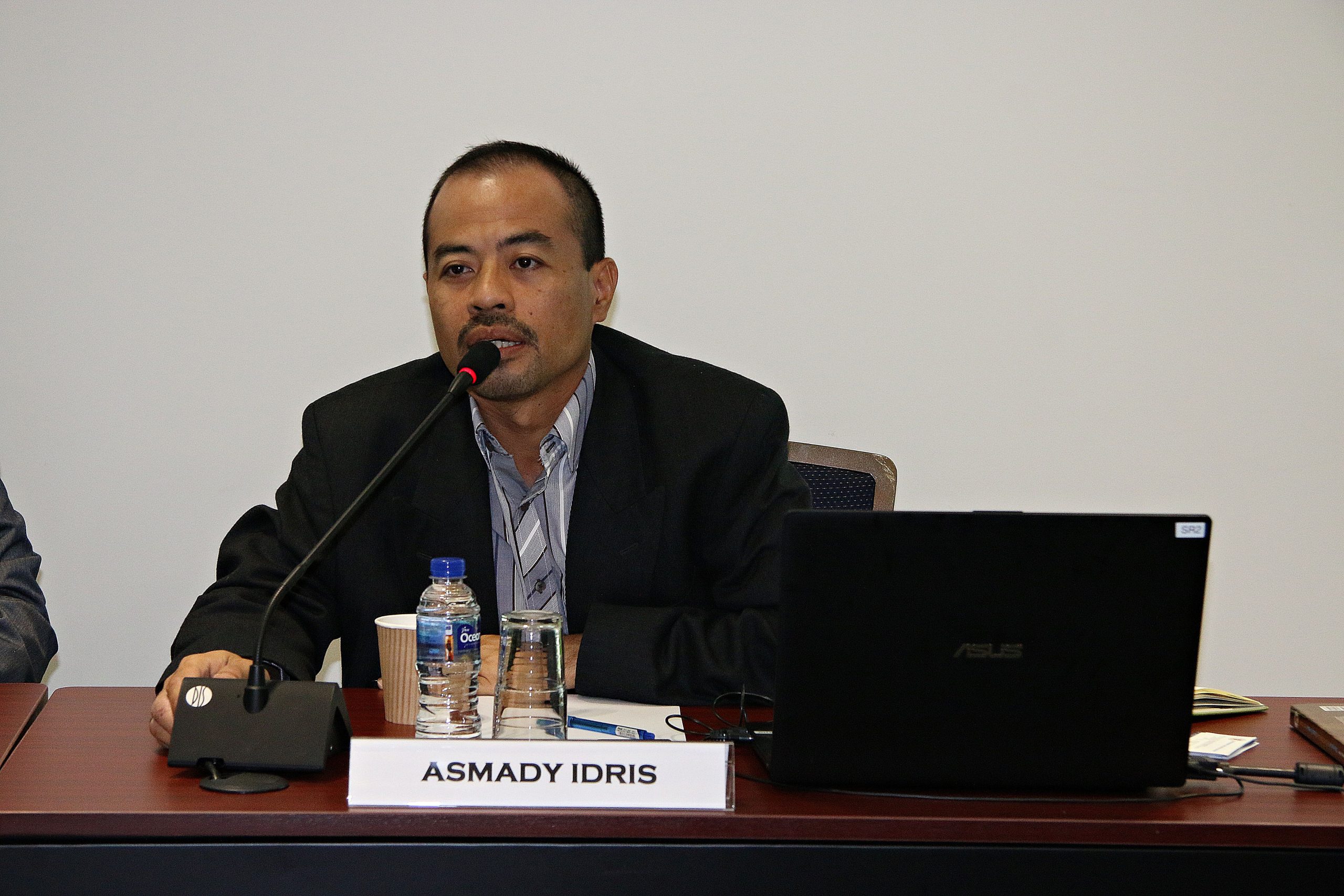
Dr Asmady’ delivering his seminar at ISEAS (Source: ISEAS – Yusof Ishak Institute)
Thursday, 30 March 2017 – Dr Asmady Idris, a political scientist who is currently Associate Professor of International Relations at University Malaysia Sabah, delivered a presentation entitled ‘Malaysia’s Religious Interaction with Saudi Arabia’.
The presentation focused on the usually neglected religious dimension of the Malaysia-Saudi Arabia bilateral relations. A fellow Muslim country, Malaysia has a long amicable relationship with Saudi Arabia as the latter is where Islam originated and is also where the religion’s Two Holy Mosques are located.
The Saudi’s support towards religious activities and institutions in Malaysia has come in various forms and types; from helping to build religious and educational institutions to the dissemination of the Koran and Islamic books to providing scholarship to Malaysians to study in Saudi Arabia. Nevertheless, the Malaysian state and its religious authority remain wary of the influence of the Saudi’s Hanbalite-Wahhabi Islam in the country.
During the talk, Dr Asmady Idris discussed the extent Malaysia is influenced by Wahhabism, a puritan ideology dominant in Saudi Arabia. With Saudi-Malaysia relations strengthening lately, does this mean Wahhabism is also exported into Malaysia? Asmady analysed the main differences between Wahhabi teachings and the Shafie School of jurisprudence that is practised in Malaysia. He reckoned that Wahhabism have little impact in Malaysia because the government guarded religious policies, and promoted Malaysia’s version of da’wah (Islamic preaching) which is different from Wahhabism. Asmady pointed out that religion is detached from the trade and economic relations between the two countries.
During the Q&A session, Asmady addressed some questions about the extent of Saudi funding to Malaysian schools, and whether Saudi universities are becoming more popular destinations for Malaysian students compared to Al-Azhar University in Cairo. He was also asked whether the true reformist vision of Muhammad Ibnu Abdul Wahab (founder of Wahhabism) is manipulated in the current setting because of political reasons. In his concluding remark, Asmady debunked the perception that Malaysia, and ruling party UMNO, is becoming Wahhabi.

Participants at the seminar (Source: ISEAS – Yusof Ishak Institute)


